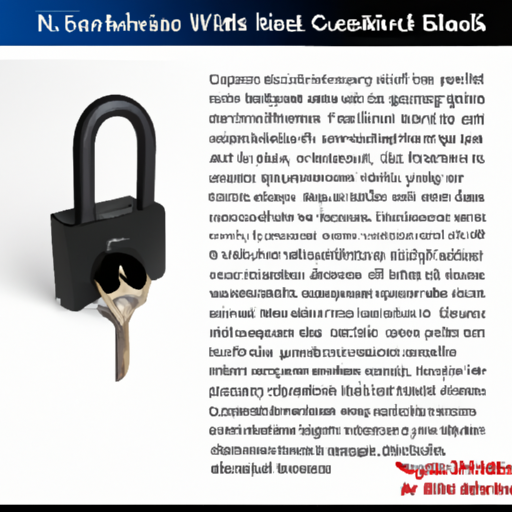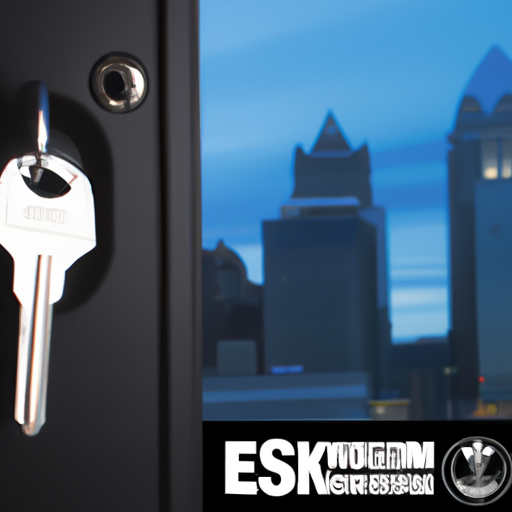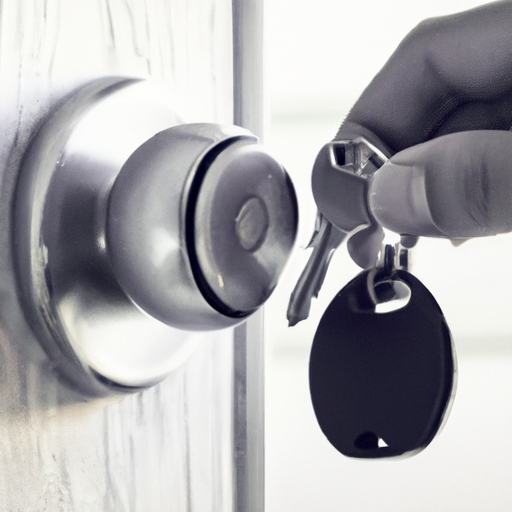
In this article, you will learn all about what it means to rekey a lock. Rekeying a lock refers to the process of changing the pins inside the lock cylinder so that a new key can operate the lock. This is a common practice done by homeowners or business owners who want to maintain the security of their property without completely replacing the lock. By rekeying a lock, you can ensure that only the new key will work, providing you with peace of mind and added security. Rekeying a lock is the process of changing the lock’s tumblers or pins so that a different key can operate it. This means that the existing lock mechanism is kept intact, but the key that was previously used will no longer work. Instead, a new key that matches the new pin configuration is used to unlock and lock the door.
The importance of rekeying a lock cannot be overstated. It is an essential security measure that ensures the safety of your home or business. By rekeying your locks, you eliminate the risk of unauthorized individuals gaining access to your property using old or lost keys.
So, when should you consider rekeying a lock? There are several situations in which rekeying is recommended:
-
Moving to a new home or office: When you move into a new place, it’s always a good idea to rekey the locks. You never know who might have access to the old keys, such as previous tenants, contractors, or real estate agents.
-
Lost or stolen keys: If you’ve lost your keys or they have been stolen, rekeying the lock is necessary to prevent anyone from using them to gain entry to your property.
-
End of a relationship or tenant occupancy: Whether it’s a breakup or a tenant leaving, rekeying your locks gives you peace of mind that the previous occupant no longer has access to your property.
Now that we understand the definition and importance of rekeying, let’s dive into the process of rekeying a lock.

Process of Rekeying
Rekeying a lock can be done either by a professional locksmith or as a DIY project. While hiring a locksmith ensures the job is done correctly, some people prefer to take on the task themselves. Either way, here’s a step-by-step guide to rekeying a lock:
-
Gather the necessary tools: To rekey a lock, you’ll need a rekeying kit, which typically includes a variety of pins, springs, a plug follower, and a key decoder. You’ll also need a set of basic tools such as screwdrivers and pliers.
-
Remove the lock cylinder: Start by removing the lock cylinder from the door. This may involve unscrewing screws or using a special tool, depending on the type of lock.
-
Take the lock apart: Once the cylinder is removed, disassemble the lock by removing the retaining ring or clip. This will expose the lock pins.
-
Remove the old pins and springs: Carefully remove the old pins and springs from the lock cylinder and set them aside.
-
Insert the new pins: Using the key decoder from the rekeying kit, determine the size and order of the new pins. Insert the pins into the corresponding chambers of the lock cylinder.
-
Reassemble the lock: Once all the new pins are in place, reassemble the lock by reversing the steps taken to disassemble it. This may involve reattaching the retaining ring or clip.
-
Test the new key: Insert the new key into the lock and ensure it operates smoothly. If necessary, make any adjustments by adding or removing pins.
By following these steps, you can successfully rekey a lock. However, it’s important to be aware of common mistakes to avoid during the rekeying process:
-
Mixing up pins: Ensure that you keep the original pins separate from the new pins to prevent confusion and potential lock malfunctions.
-
Not properly aligning the pins: Take your time to ensure that the pins are properly aligned within the lock cylinder. Misalignment can result in difficulty turning the key or even lock damage.
-
Failing to test properly: After reassembling the lock, make sure to test it thoroughly with the new key. This will help identify any issues and ensure a smooth operation.
Now that we know how to rekey a lock, let’s explore the benefits of this process.
Benefits of Rekeying
Rekeying a lock offers several advantages, making it a popular choice among homeowners and business owners alike. Let’s take a closer look at these benefits:
Enhanced security
Rekeying a lock provides improved security by rendering old keys useless and allowing only the new set of keys to operate the lock. This eliminates the risk of unauthorized access and provides peace of mind, especially in situations where you might have lost or had your keys stolen.
Cost-effectiveness compared to replacing locks
Rekeying a lock is generally more cost-effective than completely replacing the lock. Instead of purchasing new locks, you can simply change the pin configuration, which is a quicker and less expensive process. This is particularly advantageous when you have multiple locks to rekey.
Convenience of maintaining a single key for multiple locks
Rekeying is an excellent solution for properties with multiple locks. By rekeying all the locks to operate with a single key, you eliminate the hassle of carrying around a bulky keychain and simplifying access to your home or office.
Now that we’ve explored the benefits of rekeying, let’s discuss the factors to consider when deciding between hiring a professional locksmith or attempting a DIY rekeying.
Professional vs DIY Rekeying
Rekeying a lock can be done either by hiring a professional locksmith or by taking the DIY route. Each option has its own pros and cons, so let’s examine them in more detail:
Pros and cons of hiring a professional locksmith
Hiring a professional locksmith ensures that the rekeying process is done correctly and efficiently. Locksmiths have the experience, knowledge, and tools required to rekey locks with precision. They can also provide additional security advice and address any other lock-related issues you may have.
However, hiring a locksmith can be more expensive than doing it yourself. It’s also important to choose a reputable and trustworthy locksmith to ensure the security of your property.
Tips for successful DIY rekeying
If you choose to take the DIY route, here are some tips to help you successfully rekey a lock:
-
Research and watch tutorials: Before starting the rekeying process, educate yourself by researching and watching tutorials specific to your lock type. This will help you better understand the process and avoid potential mistakes.
-
Use a quality rekeying kit: Invest in a high-quality rekeying kit to ensure that you have all the necessary tools and components. A reliable kit will help make the process smoother and more successful.
-
Take your time: Rekeying a lock requires patience and attention to detail. Rushing through the process can lead to errors, so take your time and carefully follow the steps outlined in the kit’s instructions.
Situations where professional rekeying is recommended
While DIY rekeying can be a cost-effective solution for many, there are situations where hiring a professional locksmith is highly recommended. These include:
-
Complex lock systems: If your locks have advanced features or are part of a sophisticated security system, it’s best to rely on the expertise of a professional locksmith who has experience working with such systems.
-
Lack of confidence or experience: If you’re unsure about your abilities or lack experience in rekeying locks, it’s better to leave the task to a professional. This ensures that the job is done correctly and minimizes the risk of mistakes.
Now that we’ve covered rekeying methods and considerations, let’s dive into the different types of locks that can be rekeyed.
Different Types of Locks That Can be Rekeyed
Rekeying can be performed on various types of locks. Here are three common lock types that can undergo the rekeying process:
Standard pin tumbler locks
Standard pin tumbler locks are the most common type of lock found in residential and commercial properties. They consist of a series of pins that are aligned by a key. By rekeying the lock, you can change the alignment of the pins to match a new key.
Mortise locks
Mortise locks are commonly found in older homes and commercial buildings. They are often more robust and secure than standard pin tumbler locks. Rekeying a mortise lock involves removing and replacing the lock cylinder’s pins and springs.
Cylinder locks
Cylinder locks, also known as euro profile locks, are widely used in Europe and have gained popularity in other regions as well. They consist of a cylinder that can be easily removed and replaced, making the rekeying process relatively simple.
Now that we’ve explored the different lock types, let’s consider the unique considerations for rekeying commercial and residential locks.

Rekeying Commercial vs Residential Locks
Rekeying commercial and residential locks have some unique considerations. Let’s delve into these differences:
Unique considerations for rekeying commercial locks
Commercial properties often have more complex lock systems, including master key systems with multiple levels of access control. When rekeying commercial locks, it’s important to consider the overall security requirements of the property. It may be necessary to consult with a professional locksmith who specializes in commercial security to ensure that the new keying system meets your specific needs.
Factors to consider when rekeying residential locks
Residential rekeying focuses primarily on individual security needs. Consider the number of locks in your home, including exterior doors, garage doors, and any additional locks like security gates or safes. Rekeying all the locks at once can provide a comprehensive and convenient security solution.
Differences in cost and complexity of rekeying
Generally, rekeying commercial locks is more expensive and complex than rekeying residential locks. Commercial locks often require higher security measures and may involve additional steps such as creating a master key system.
Now that we’ve examined the considerations for commercial and residential rekeying, let’s explore the alternatives to rekeying.
Alternatives to Rekeying
While rekeying is an effective security measure, there are alternative options that may better suit your needs. These alternatives include:
Lock replacement
If your locks are old, damaged, or no longer meet your security requirements, replacing them entirely might be a better option. This allows you to install new locks with upgraded features and improved security.
Master key systems
Master key systems offer a higher level of access control by allowing different levels of access to different individuals. This is particularly useful in commercial settings where different departments or employees require various levels of access within the same building. Implementing a master key system usually involves the expertise of a professional locksmith.
Electronic access control systems
Electronic access control systems utilize electronic devices such as key cards or key fobs to control access to a property. These systems provide enhanced security features and the ability to track and monitor access. While more expensive than rekeying, electronic access control systems offer greater flexibility and convenience.
Now that we’ve explored the alternatives to rekeying, let’s discuss how to find professional locksmith services.
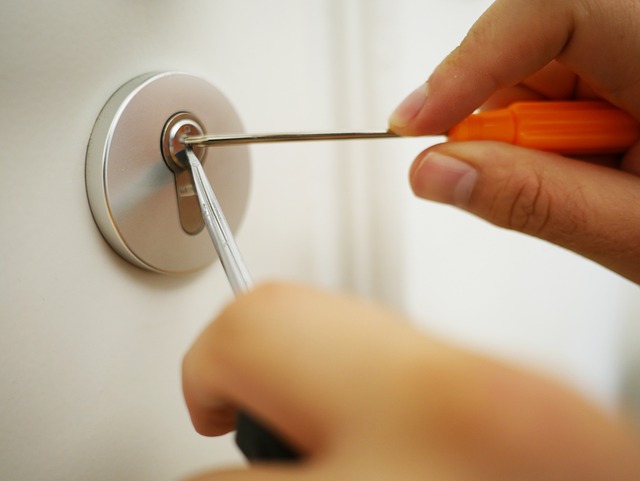
Finding Professional Locksmith Services
When searching for professional locksmith services, it’s essential to do thorough research to ensure you choose a reputable and reliable locksmith. Here are some factors to consider when making your selection:
Researching reputable locksmith companies
Start by researching locksmith companies in your area. Look for reviews and testimonials from previous customers to gauge their reputation and quality of service. It’s also helpful to check if the locksmith is licensed and insured.
Factors to consider when choosing a locksmith
Consider factors such as experience, availability, and pricing. A locksmith with several years of experience is more likely to have the necessary expertise to handle any lock-related issues effectively. Availability is crucial, especially during emergencies when you might need immediate assistance. Compare pricing among different locksmiths to ensure you get the best value for your money.
Questions to ask before hiring a locksmith
Before hiring a locksmith, ask them the following questions:
- Are you licensed and insured?
- How long have you been in business?
- Can you provide references?
- Do you offer 24/7 emergency services?
- What is your pricing structure?
Asking these questions will help you make an informed decision and ensure that you hire a professional locksmith who meets your specific requirements.
Now that we’ve discussed finding professional locksmith services, let’s move on to maintenance and regular rekeying.
Maintenance and Regular Rekeying
Maintaining your locks is essential to ensure their longevity and effectiveness. Regular rekeying is also recommended to maintain security. Here’s what you need to know:
Frequency of rekeying
While there is no hard and fast rule for how often you should rekey your locks, it’s generally recommended to do so every few years or whenever there is a change in occupancy. This helps maintain security and ensures that only authorized individuals have access to your property.
Signs that indicate a lock needs rekeying
There are several signs that indicate a lock may need rekeying:
-
Difficulty operating the lock: If the lock becomes stiff or difficult to turn, it may be a sign that the pins inside are damaged or misaligned.
-
Key wear and tear: If the key shows signs of wear, such as bent or broken teeth, it can cause problems when turning the lock.
-
Lost or stolen keys: If you’ve lost your keys or they have been stolen, rekeying the lock is necessary to prevent unauthorized access.
Tips for maintaining locks to avoid frequent rekeying
To minimize the need for frequent rekeying, it’s important to properly maintain your locks. Here are some tips:
-
Lubricate locks regularly: Apply a small amount of graphite or silicone-based lubricant to the lock mechanism to ensure smooth operation.
-
Keep locks clean: Remove any dust or debris that may accumulate in the lock to prevent it from interfering with its functionality.
-
Avoid excessive force: Use gentle pressure when turning the key to avoid causing damage to the lock mechanism.
By following these maintenance tips, you can prolong the lifespan of your locks and potentially reduce the need for frequent rekeying.
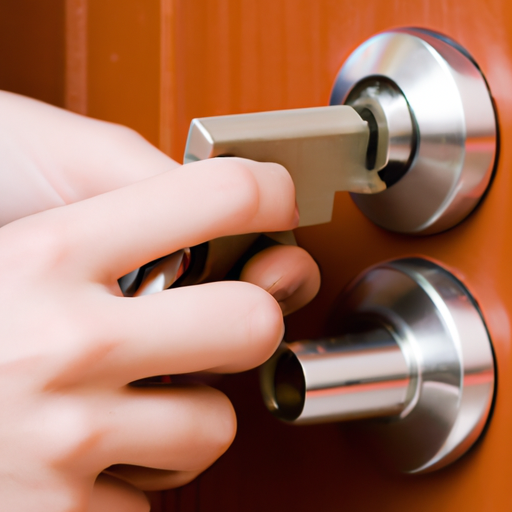
Conclusion
In conclusion, rekeying a lock is a vital security measure that ensures the protection of your home or business. Whether you’re moving to a new place, have lost keys, or simply want to enhance security, rekeying provides a cost-effective solution.
By understanding the process of rekeying, the benefits it offers, and the alternatives available, you can make an informed decision on how to best secure your property. Whether you choose to hire a professional locksmith or take the DIY route, the importance of rekeying should not be overlooked.
Regular maintenance and rekeying, when necessary, will help keep your locks in optimal condition and ensure your security remains intact. By following the tips provided in this article, you can navigate the world of rekeying with confidence and enjoy the peace of mind that comes with knowing your property is secure.
